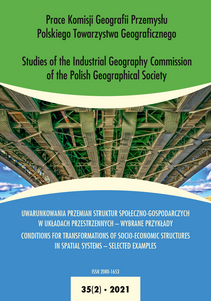The impact of the transformation of the economy of the Republic of Kazakhstan on the reproduction of human capital: socio-economic aspect
The impact of the transformation of the economy of the Republic of Kazakhstan on the reproduction of human capital: socio-economic aspect
Author(s): Gulnara Nyussupova, Gaukhar Aidarkhanova, Stephen S. YoungSubject(s): National Economy, Labor relations, Economic policy, Economic development, Human Resources in Economy, Socio-Economic Research
Published by: Wydawnictwo Uniwersytetu Komisji Edukacji Narodowej w Krakowie
Keywords: human capital; innovative economy; institutions for the development and reproduction of human capital; measurement of human capital;
Summary/Abstract: In the context of the transition of the national economy of the Republic of Kazakhstan to an innovative type of development, the issues of the formation and development of human capital are becoming increasingly important. Increasing labor productivity, developing high-tech production, creating innovative products in the republic is impossible without providing the branches of the national economy with personnel who have the necessary professional and personal competencies. In turn, social and economic factors affect the formation and quality of human capital, while there is an uneven spatial distribution of human resources. Accordingly, the priorities of the socio-economic development of the territories require coordination with the tasks of increasing human capital. The basis of this study is the analysis of the reproduction processes of human capital in the regions of the Republic of Kazakhstan, taking into account the socio-economic component. The object of the research is the human capital of the regions of the Republic of Kazakhstan, the subject of the research is the socio-economic aspect of the development of human capital. The method of the integral index for assessing human capital was taken as the main model for calculating human capital. We identified not only socio-economic factors affecting the effective use of human capital in the regions, but also demographic, environmental components and calculated indices based on these factors. The analysis showed that one of the key factors affecting the differentiation of the level of accumulated human capital is socio-economic. According to the results, the regions were identified as leaders and outsiders in terms of the level of accumulated human capital, regions with a post-industrial warehouse of the economy have high indicators of the human capital index, regions with agricultural specialization are low.
Journal: Prace Komisji Geografii Przemysłu Polskiego Towarzystwa Geograficznego
- Issue Year: 35/2021
- Issue No: 2
- Page Range: 38-52
- Page Count: 15
- Language: English

